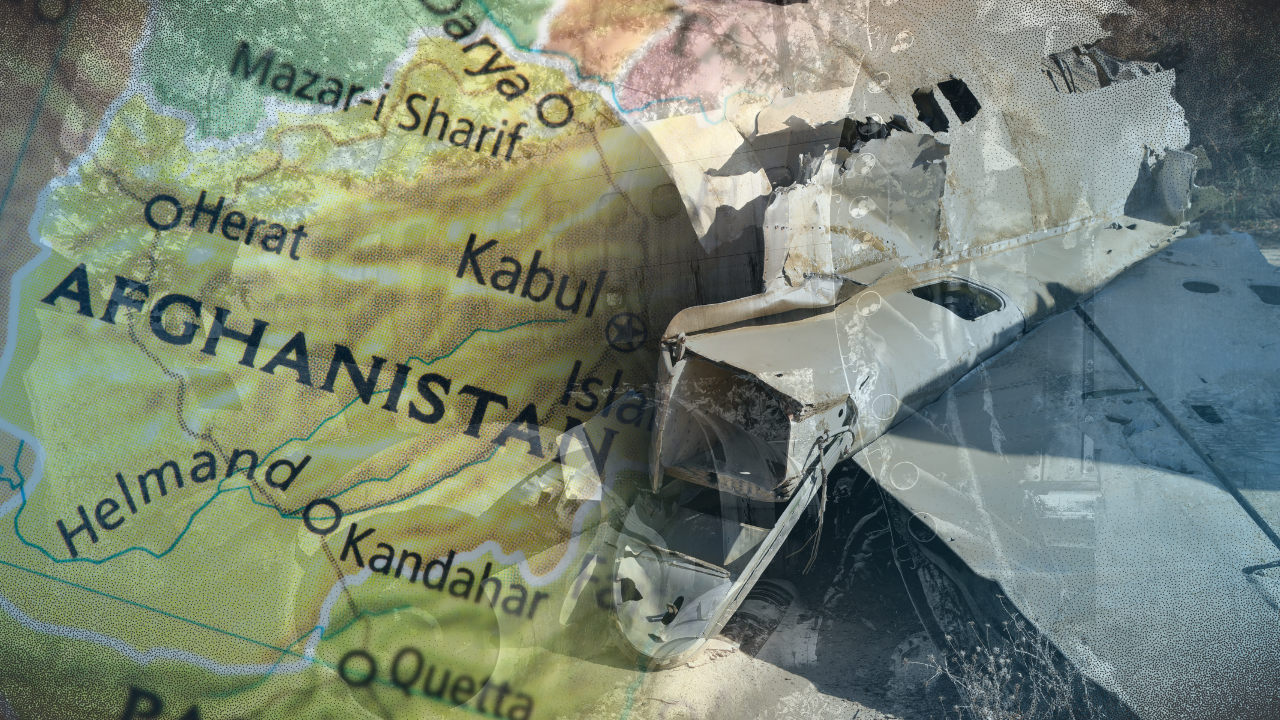ISLAMABAD — A Russian private jet carrying six people crashed in a remote area of rural Afghanistan but the pilot and some of the others on board survived, the Taliban said Sunday.
The crash happened Saturday in a mountainous area in Badakhshan province, regional spokesman Zabihullah Amiri said, adding that a rescue team was dispatched to the area. The province is some 250 kilometers (155 miles) northeast of Afghanistan’s capital, Kabul. It is a rural, mountainous area, home to only several thousand people.
The Taliban’s Transportation and Civil Aviation Ministry issued a statement online saying the plane was found in the province’s Kuf Ab district, near the Aruz Koh mountain.
“The pilot was found by the search team of the Islamic Emirate of Afghanistan,” the statement said. “According to the pilot, four people, including the pilot, are alive. … The search and assistance of the Islamic Emirate investigation team for the remaining survivors is ongoing.”
There was no independent confirmation of the information. The Taliban also published a video of snow-capped mountains in the area.
READ: Russian fighter plane crashes near Ukraine border
In Moscow, Russian civil aviation authorities said a Dassault Falcon 10 went missing with four crew members and two passengers. The Russian-registered aircraft “stopped communicating and disappeared from radar screens,” authorities said. It described the flight as starting from Thailand’s U-Tapao–Rayong–Pattaya International Airport.
The plane had been operating as a charter ambulance flight on a route from Gaya, India, to Tashkent, Uzbekistan, and onward to Zhukovsky International Airport in Moscow.
Russian officials said the plane was built in 1978 and belongs to Athletic Group LLC and a private individual. The Associated Press could not immediately reach the owners.
Russia’s Investigative Committee later said it had opened a criminal case on charges related to potential violations of air safety rules or negligence. Procedures call for such investigations to be opened over crashes.
Foreign Ministry spokeswoman Maria Zakharova also said that the Russian Embassy in Afghanistan was working with local officials on the incident.
A separate Taliban statement from Abdul Wahid Rayan, a spokesman for the Taliban’s Information and Culture Ministry, described the plane as “belonging to a Moroccan company.” Indian civil aviation officials similarly described the aircraft as Moroccan-registered.
The plane had been with a medical evacuation company based in Morocco. However, a man who answered a telephone number associated with the company Sunday said it was no longer in business and the aircraft now belonged to someone else.
Rayan blamed an “engine problem” for the crash without elaborating. The Taliban’s chief spokesman, Zabihullah Mujahid, said Afghan air force rescue teams were searching the area.
Tracking data from FlightRadar24 for the aircraft, analyzed by the AP, showed the aircraft’s last position just south of the city of Peshawar, Pakistan, at around 1330 GMT Saturday.
International carriers have largely avoided Afghanistan since the Taliban’s 2021 takeover of the country. Those that briefly fly over rush through Afghan airspace for only a few minutes while over the sparsely populated Wakhan Corridor in Badakhshan province, a narrow panhandle that juts out of the east of the country between Tajikistan and Pakistan.
Typically, aircraft heading toward the corridor sharply turn north around Peshawar and follow the Pakistani border before briefly entering Afghanistan. Zebak is just near the start of the Wakhan Corridor.
Though landlocked, Afghanistan’s position in central Asia means it sits along the most direct routes for those traveling from India to Europe and America. After the Taliban came to power, civil aviation simply stopped, as ground controllers no longer managed the airspace.
Fears about anti-aircraft fire, particularly after the 2014 shooting down over Ukraine of Malaysian Airlines Flight 17, saw authorities around the world order their commercial airliners out.
While nations have slowly eased those restrictions, fears persist about flying through the country. Two Emirati carriers recently resumed commercial flights to Kabul.
The last fatal airplane crash in Afghanistan came in 2020, when a U.S. Air Force Bombardier E-11A crashed in Ghazni province, killing two American troops.
